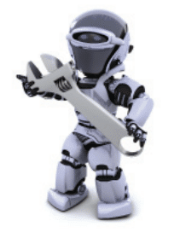ROBOTS WILL STEAL OUR JOBS, BUT THEY’LL GIVE US NEW ONES
At the Dusseldorf Airport, robotic valet parking is now reality. You step out of your car. You press a button on a touch screen. And then a machine lifts your car off the ground, moving it into a kind of aerial parking bay. Built by a German company called Serva Transport, the system saves you time. It saves garage space, thanks to those carefully designed parking spots. And it’s a sign of so many things to come. “But the one thing it doesn’t do,” says J.P. Gownder, an analyst with the Boston-based tech research firm Forrester, “is steal jobs.” In fact, it creates them. Before installing the robotic system, the airport already used automatic ticket machines , so the system didn’t replace human cashiers. And now, they need humans to maintain and repair all those machines. Gownder uses the Dusseldorf parking garage as a way of showing that the coming development in robotics and artificial intelligence may not threaten humans. In a study from 2013, Oxford professors Carl Frey and Michael Osbourne say that machines could replace about 47% of our jobs over the next 20 years, but Gownder says he has a more positive view. “While these technologies are both real and important, and some jobs will disappear because of them, the future of jobs isn’t nearly as dark as some people believe,” Gownder writes in the report. “In reality, automation will cause the growth of many new jobs—including some entirely new job categories.”

